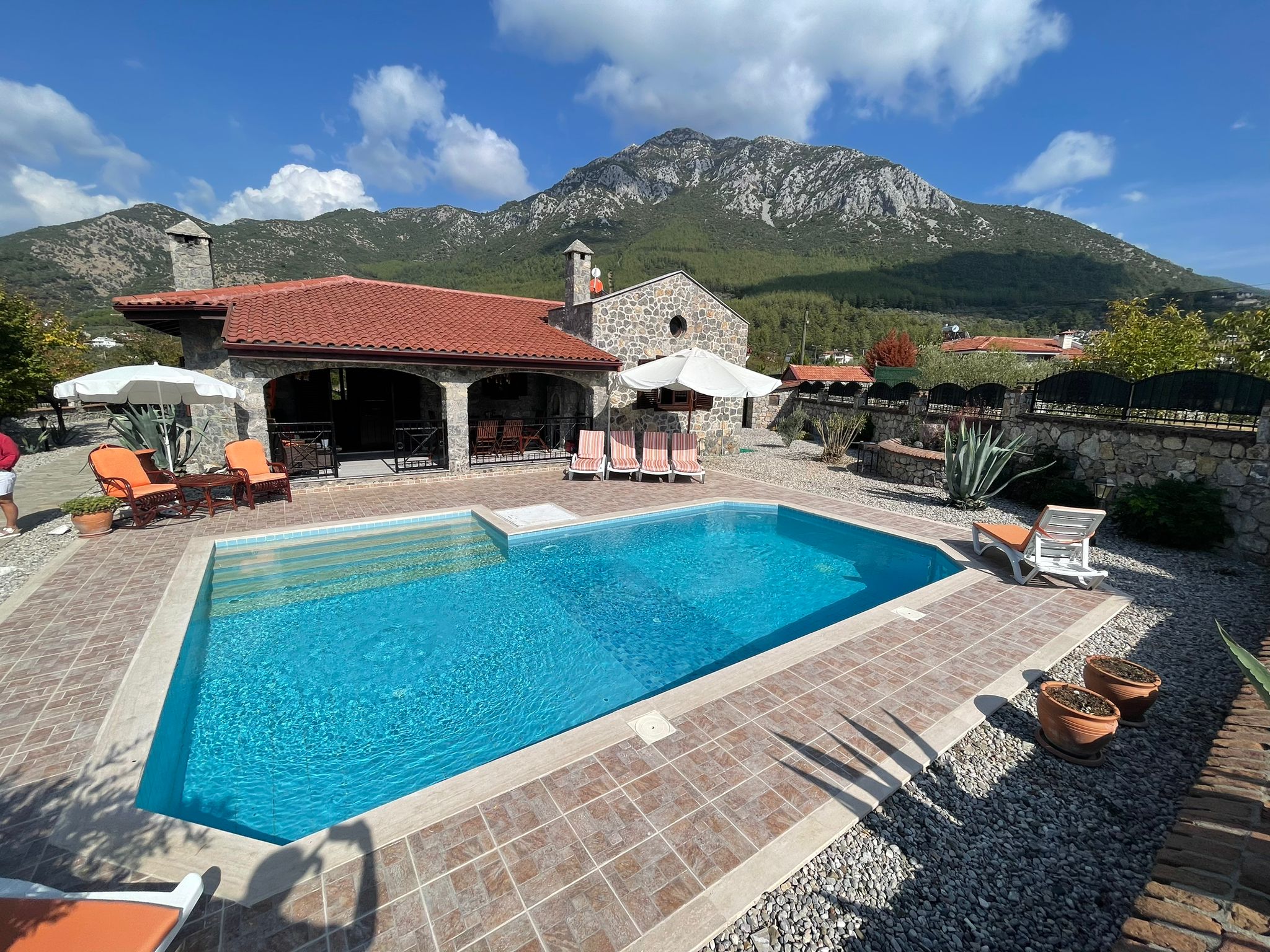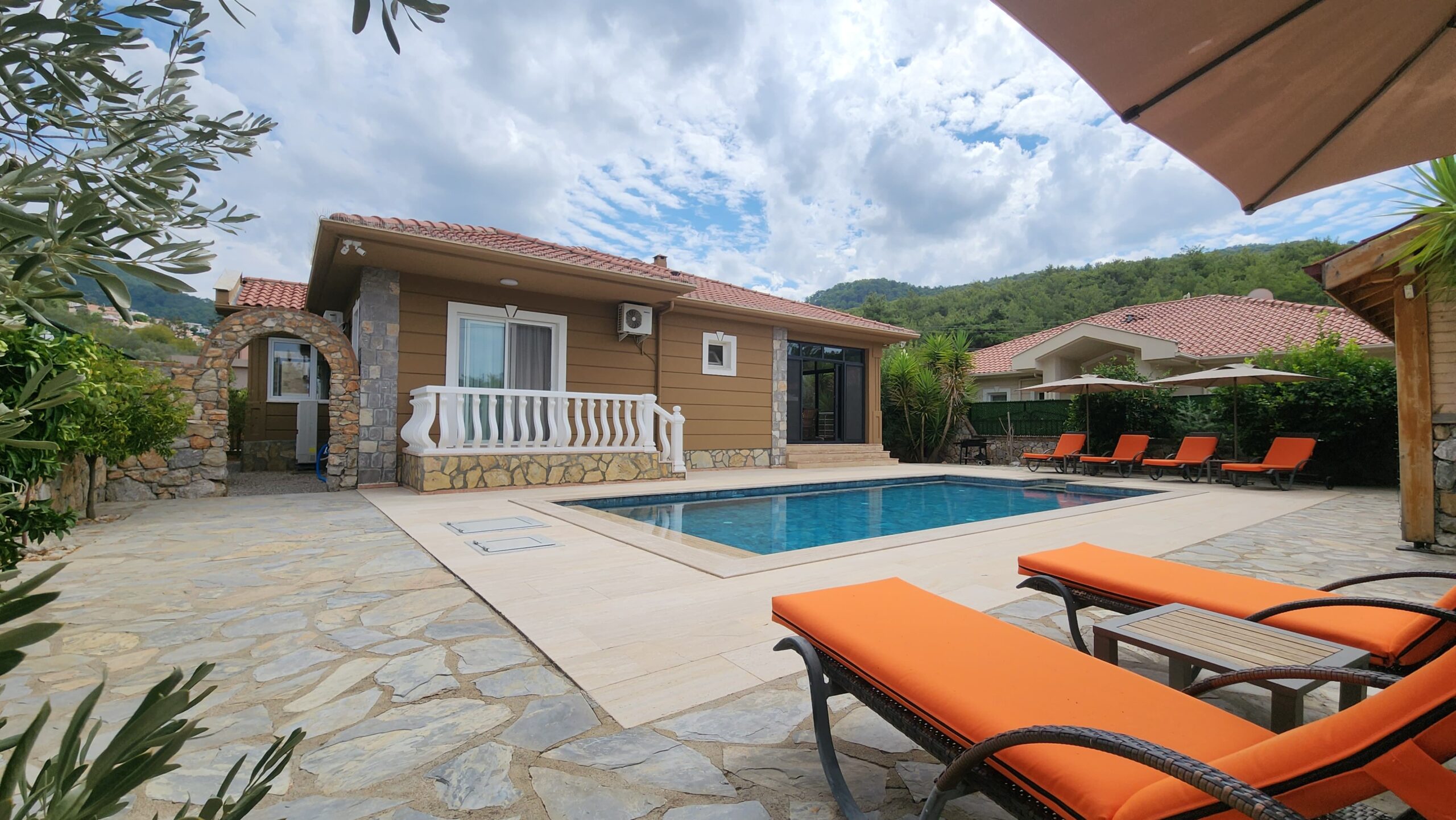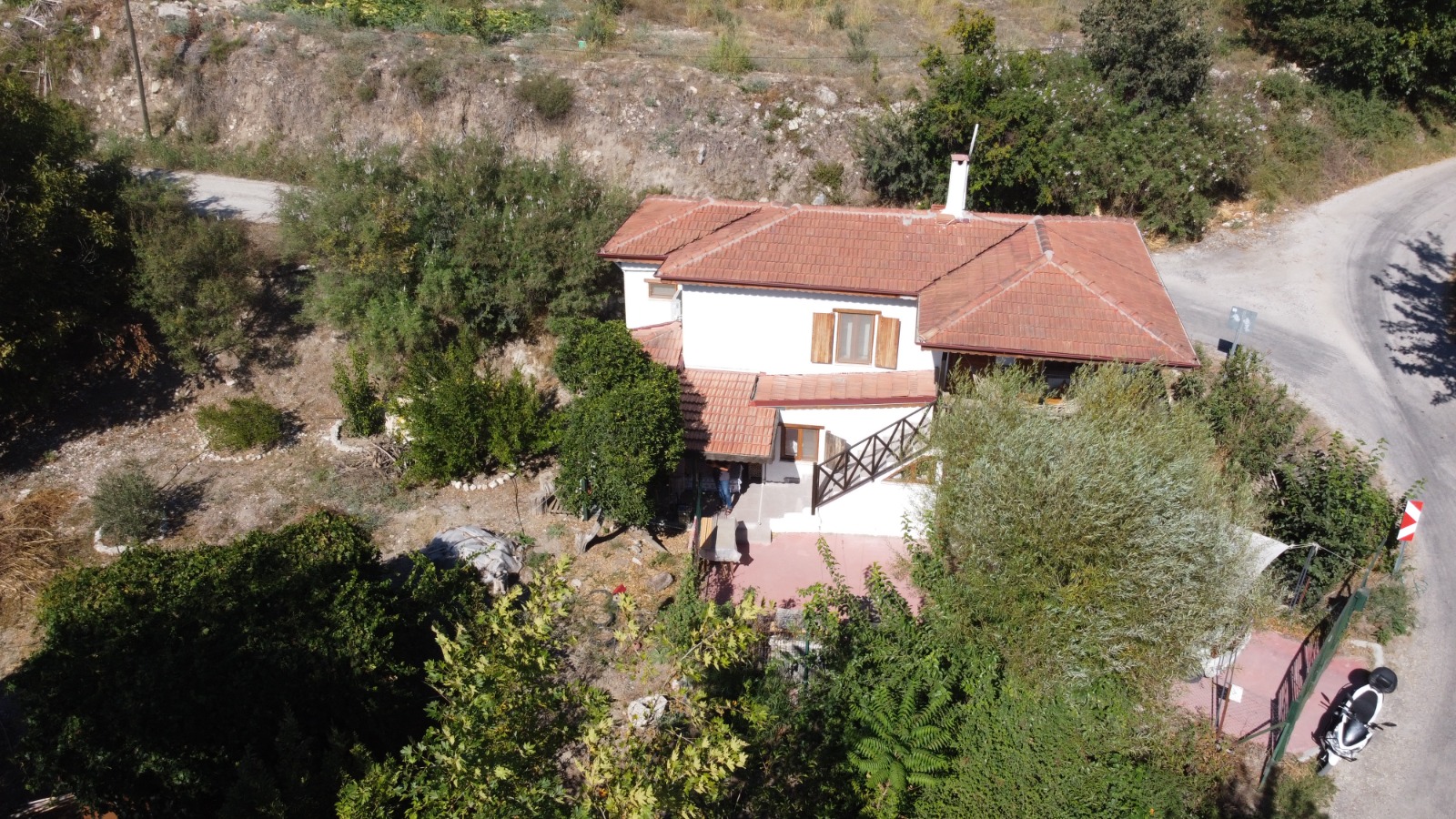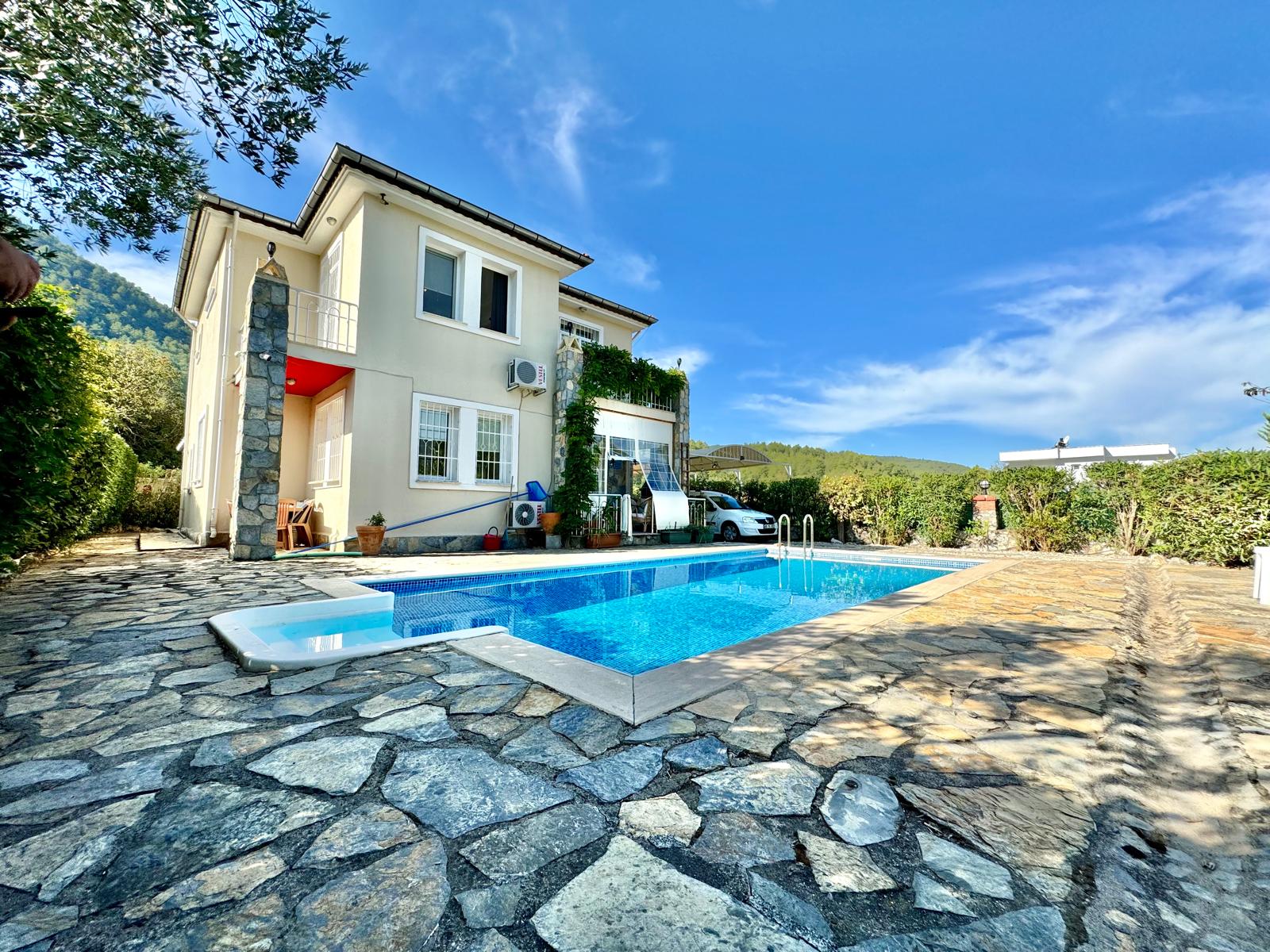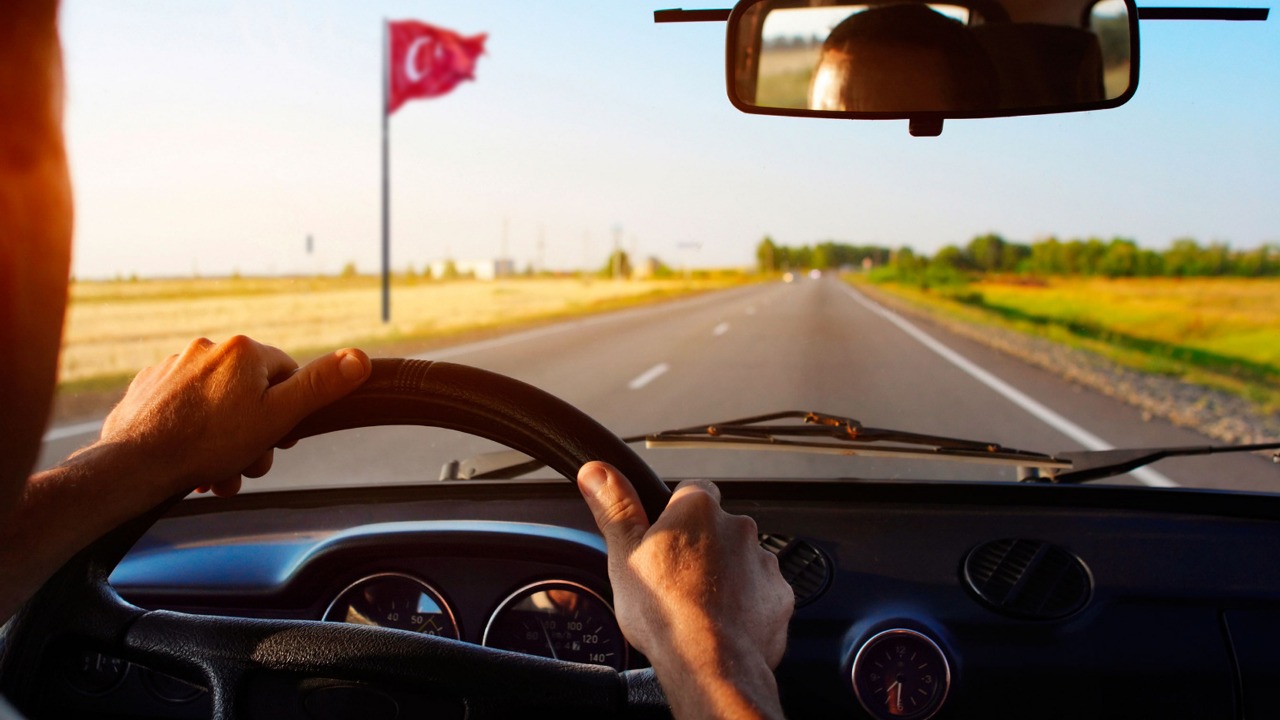
Transport, Cars and Driving in Turkey
When people consider relocating to the Fethiye or one of the surrounding areas, one of the many considerations is how to get from A to B. Whilst Fethiye and Calis, including Babatasi, Tuzla, Akarca, Foca areas etc are all pretty flat, some of the other areas whilst having fabulous views are on the side of, or the other side of a hill/mountain. In the Fethiye and Calis area, walking and cycling are very popular, due to the beautiful kordon and cycle paths available.
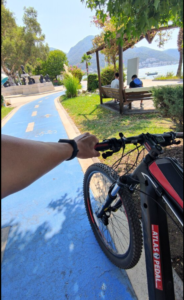
The areas are also served by an excellent dolmus (mini bus) service. To use these services you have to have a HES code (Turkeys version of track and trace) which you link to your bank card for payment, or buy a kent card (similar to an oyster card) and link it to that. You can download the Mugla Kart app, which provides information on routes and online purchases of a card, via a Turkish mobile telephone number.
To travel further a field there is the otogar (bus station) in Fethiye where you can access the larger style coaches, these go to many places, including the airports, Antalya, Izmir, Istanbul infact pretty much anywhere.
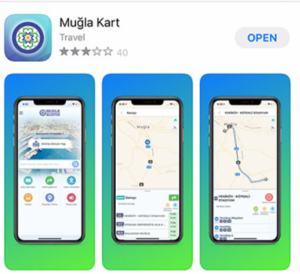
Bringing in your own vehicle to Turkey or buying in Turkey
Many people relocating consider the option of purchasing a car in Turkey and some consider bringing their own vehicles over, especially if they have relocation items the want bringing to their new homes. The car journey can be a fabulous adventure, driving through Europe, before starting your new lives.
Having a car, also allows you to get out and explore the history rich, beautiful country. It opens up a whole world of possibilities.
However there are certain considerations, that are important to know before making your decision on whether to bring in your own vehicle or buy a car when in Turkey.
Driving Licences
If you are driving on your driving licence from your home country, there are certain rules you need to be aware of: –
If you are a holiday maker or entering Turkey with an evisa there is no need to have a foreign licence translated or notarised. However if you hold a Residence Permit you can legally drive with your foreign licence but it must be translated and notarised.
** After driving in Turkey for 6 months (without leaving the country), your foreign licence will no longer be valid. You will need to leave the country and re-enter to get a new passport stamp, transfer you existing licence to a Turkish driving licence or take a Turkish driving test.
The penalty if you are caught using a foreign driving licence after the 6 months allowance (From last passport entry stamp) is 500tl, but also remember your insurance will also be invalid. For anyone driving with an expired driving licence (UK licences need renewing every 10 years) if caught the licence will be confiscated and sent back to the issuing body.
If you are a Turkish citizen or a foreigner holding Turkish citizenship, you are able to drive for up to 2 years with your foreign licence, before having to use the passport stamp rule, taking your Turkish driving test, or applying for a driving licence conversion.
Bringing in your own car to Turkey
So you’ve decided to bring your car into Turkey with you? Then assuming you have not got residency the border police will issue you with 90 days permit. When you have applied for your short-term residency permit (STRP) you then must go to your local customs office (Gumruk) to get them extended inline with the 1 or 2 years of your STRP.
To get the extension you will need
- Car registration document from your home country
- Proof of ownership (the log book does not normally provide this – so you should have the receipt/invoice etc)
- Passport
- Residency Card
- Green card insurance for the vehicle.
There is no cost to do this, however most of the officers speak Turkish so it is advisable to have a Turkish speaker/translator with you
When you initially arrive at the border in Turkey you will need to get a visa/permit for your vehicle. To get this you will need
- Car registration document from your home country – this needs to be in your name
- Full insurance (Turkish insurance can be purchased at the border)
- Your driving licence
As of October 2015 the law is you can keep your car in Turkey for up to 2 years on a foreign plate. After the 2 years you will need to leave the country with the car for a minimum 185 days, should you want to return with the car or another car. If you do not want to return with a car, then you can leave the country with the car and return as soon as you want to.
Should you not leave the country with your vehicle after 2 years then your car can be confiscated and you could be heavily fined.
There is an exemption to the 185-day rule if the importer is retired with pension (state pension, not early private pension) and it is the first time they have imported a vehicle into Turkey, the 185-day rule is waived)
Any vehicle that is imported temporarily for private use can be driven by the vehicle’s owner. There spouse or children who are residents abroad (e.g. not a resident permit holder or citizen of Turkey) are also allowed to driver it, as long as the owner is present in the vehicle during use.
Should the owner of the car want to leave Turkey without the car then the customs must be notified of this in advance of any intention to travel. If the owner if out of Turkey, this does not extend the time the car can stay in Turkey. Whilst the owner is out of Turkey no one else is allowed to drive the vehicle.
You also have the choice of keeping your car in the country, but to do this you would have to pay tax on it, which is very expensive – you would need to talk to the customs office if you were considering this option.
As you can see it can be quite complicated to bring your car here, so the other option to consider is buying a vehicle here. To buy you will need to be a residency permit holder or citizen.
Buying a car in Turkey
Cars in Turkey are expensive; however they hold their value. They will need in most cases a TUV (equivalent of an MOT) every 2 years (with van style vehicles e.g. FIAT Doblo requiring them annually). Vehicles are also subject to car tax; this can be paid annually or in January and July each year.
The buying process is very simple. You find the vehicle. You can do a damage enquiry in the vehicle to see it’s repair history and you may wish to take it for an inspection at an impartial garage. This is the choice of the buyer.
(To check the history via a Turkish mobile, you put the registration plate number and send it to 5663) You can check via Web ile Sorgulama – Sigorta Bilgi ve Gözetim Merkezi (sbm.org.tr) )but you will need to understand Turkish or use google translate.
If you are buying a new car, then the dealer will help coordinate this process, it will be pain free. There are many dealerships in and around the Fethiye area.
If you are buying a second-hand car, you will need to go to the notary office with the seller of the vehicle. You will also need to take an official translator with you. It is customary for the buyer to pay all the fees; however this can be negotiable.
The noters office will enter names and ID numbers of the buyer and seller, along with the vehicle registration details and agreed sale price onto the online system. The system then produces a sales agreement which is signed by both the buyer and the seller. A document will then be issued to enable the new owner to have produced and buy new number plates for the vehicle (if buying from a non-Turkish Citizen then new plates are not needed. If buying form a Turkish Citizen new number plates will be needed. All non-Turkish citizens drive M plated vehicles) ** PLEASE note it is illegal for a Turkish Citizen to drive an M plated car.
![]()
A new ‘log book’ will also be printed and issued. The noters office will check there are no debts against the vehicle, including unpaid fines or tax and that the vehicle has a valid TUV certificate. The buyer must have insurance for the vehicle before driving it.
For the purchase process the buyer will need a translated and notarised copy of their passport (and the original and valid residency permit (or work permit).
Turkish Number Plates
Did you know that the first 2 numbers on a Turkish number plate indicate where the car is from (area registered to)? 48 is the code for Mugla Province, which you will see the majority of car in Fethiye and surrounding area having. Have a look at the map below to see the other regions, in total there are 81.
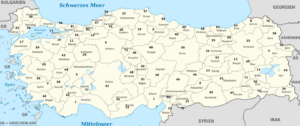 NB : All information contained in this article is correct as of 1/11/2021
NB : All information contained in this article is correct as of 1/11/2021



